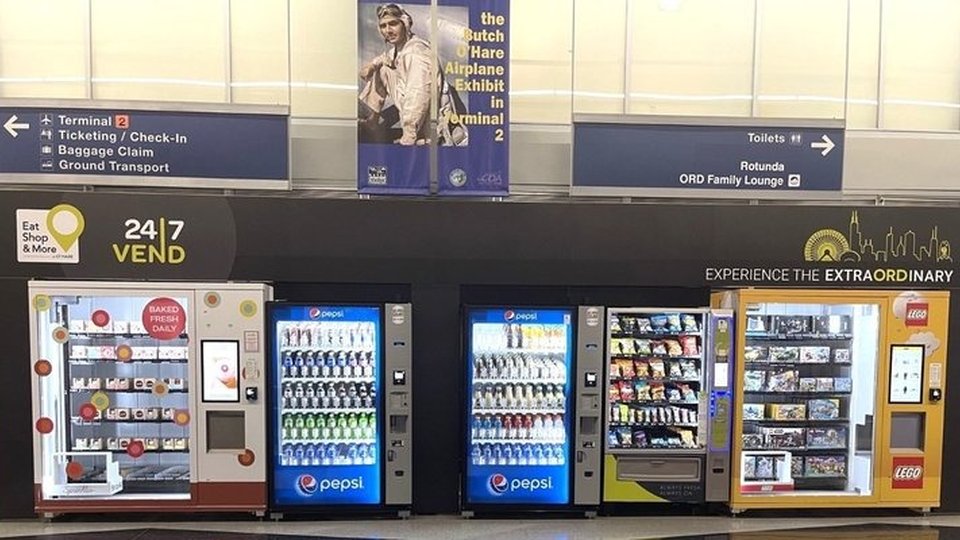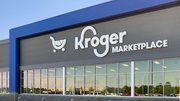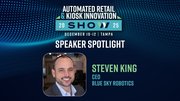Commentary
Micro markets, self-service retail now ubiquitous with customers loving convenience, variety
Self-service offerings are becoming a necessity for many retailers as consumers increasingly adopt tap-and-pay options. Self-service kiosks save retailers money, manpower and crucial resources.

July 17, 2023 | Ravi Venkatesan
Traveling through an airport recently and looking for a meal to eat both in the airport and to take on the plane, travelers are presented with a variety of options, but what stands out the most is the proliferation of self-service micro markets and vending.
Ranging from selling everything from full meals to grab-and-go sandwiches, salads, cold and hot drinks, pizza and snacks, to small micro markets or kiosks specializing in selling travel necessities like travel pillows, headphones, phone chargers, toiletries, OTC medicine and even clothes and games for the kids. There are now self-serve micro markets for perfume, sunglasses and even time in a massage chair!
The business of unattended retail micro markets, unmanned kiosks and vending machines is growing globally and expected to reach $46 billion in 2027, according to a report by American Express. While we saw this trend happening prior to 2020, this trend is being driven by the need for convenience and health-related concerns even more since the emergence of COVID and has exploded exponentially.
In fact, according to a recent survey by Cantaloupe Inc., 90% of consumers used unattended retail in the past two years with many preferring to tap and go. With the accompanying labor shortages, self-service options are becoming a necessity for many retailers. Self-service kiosks save money, manpower and crucial resources for retailers.
Points of service expand
Airports aren't the only places embracing self-service micro-markets and vending. This type of retail experience can be found in hotels, office buildings, apartment buildings, amusement parks, stadiums, tourist attractions, gas stations, gyms, schools and universities, military bases, hospitals, grocery stores, correctional facilities and pretty much anywhere someone wants to purchase food or a product.
Even concert venues are offering self-service vending machines for merchandise. And what about those booths at the beach that will spray suntan lotion or the body dryers at water parks that dry you off?
Electric vehicle charging is another example of the self-service economy and unattended retail space. Retail is definitely changing and micro markets, self-service and vending are a big part of those changes.
Cantaloupe Inc. was founded in 1992 and was originally started on the golf course, with a need for vending machines to dispense golf balls at different holes. Since that time, Cantaloupe's goal of providing cashless acceptance in what was traditionally a cash-driven vending market has helped forge today's self-service retail market.
On a larger scale, Amazon Go is another example of the grab-and-go self-service micro market concept that is poised to take off. Amazon Go offers the world's first checkout-free grocery store. Using sensors and artificial intelligence, shoppers can shop and then just walk out of the store with their purchases — without having to wait in line to pay for them. Customers simply swipe their Amazon Go app upon entering the store and shop away.
Amazon Go: leading or following?
While the big retailers like Amazon have been embracing the micro market concept with their new brick and mortar locations, smaller vending and convenience store companies have long been in the unattended retail space.
Group C is an example of a growing company that has embraced the unattended/self-service food industry and transitioned its vending expertise into micro markets. Group C is one of the largest independent vending companies in the New York City area with 15,000 vending machines. But beyond vending machines, Group C also bills itself as a wireless technology firm.
As part of that technology, Group C manages micro markets that provide healthy food and products for the nation's largest public school system servicing K-12 schools, as well as offering everything from vending and coffee services to micro markets and hotel pantry solutions.
Group C recently contracted a large corporate client that was building five office buildings in New York City with more than 48,000 employees. The buildings needed a micro market program that would serve not only the office break rooms, but also provide a market experience on every floor of the buildings.
To pull this off, Group C employed the technology that tracked inventory, provided a POS system and was able to be integrated into their current vending management system. The technology Group C is using is Cantaloupe's Seed Platform and Cantaloupe's Yoke program to provide self-checkout software and solutions for the micro markets and vending operators to maximize potential for growth, expansion and increased profit margins.
By putting this technology in place, Group C was able to increase its revenue by 200% over traditional vending and increased the average sale by $4 to $6 per transaction, all while paying zero dollars in commissions.
This self-service model also reduces the need for multiple employees, creates an opportunity for customers to serve themselves, check themselves out, and do it all within a smaller footprint.
"It's friendly for consumers, it offers a mobile pay app, and it integrates seamlessly with our internal systems to make running a micro market efficiently,"said Mike Cascione Jr., a partner at Group C.
So while shopping today seems easier and faster than ever with a proliferation of online options, shopping in person is poised to become more automized and consumers will start to see more self-service options. Industry sources estimate that digital transformations and the contactless payment market are expected to grow to more than $100 billion by 2026 — up from its current market value of an estimated $40 billion.
Ravi Venkatesan is CEO at Cantaloupe, Inc.,a digital payments and software services company that provides end-to-end technology solutions for the unattended retail market,
 ChatGPT
ChatGPT Grok
Grok Perplexity
Perplexity Claude
Claude




